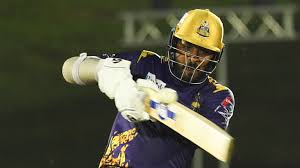Views
Lyfewealth Charles Wobo’s Rise From Skits To Stardom

Lyfewealth Charles Wobo Shares His Inspiring Journey To Stardom In This Intimate Q&A
Step into the spotlight with Lyfe Wobo, aka Orlu Papa, as he pulls back the curtain on his creative genius in an exclusive, no-holdsbarred interview with Diaspora Watch’s OBINNA EBOGIDI and ABIGAIL EKINE. From his humble beginnings to becoming a household name in Nigeria’s entertainment scene, the University of Port Harcourt graduate and multi-talented sensation shares his unfiltered story of triumph, creativity, and perseverance as a skit maker, actor, and brand influencer.
Your skits have become incredibly popular online. What inspired you to start creating them, and what’s your creative process like?
My creative process is usually into three phases, and they are the most difficult stages in creating a skit. The first one is getting the skit idea that will make people laugh. After creating the idea, the second one is editing the video skits, and the last one is shooting the skit content.
How do you come up with ideas for your skits, and what do you think resonates with your audience?
I get my idea from extensive thinking, most times you see things happening and you will be driving by and you will feel the urge to develop something from it, something hilarious that will make people laugh. I get the idea, then I extend it and develop it, then it turns to a solid idea, then it turns to something that can crack one up, and also by working with some scriptwriters’ ideas. I resonate with my audience by playing different characters, different roles in my skit, the nature of the character I play, that is hilarious and ability to crack people up. My fans love the characters I play with, and they vibe with it.
You are successfully transitioning from skit making to stand-up comedy. What challenges did you face, and how did you adapt your style for live performances?
I started entertainment as a stand-up comedian, but due to stage fright, I backtracked. There is always this stage fright when they call you out, as you see the crowd, you are supposed to crack them up and make them laugh, most times there are crowds of people mixed up with characters, you don’t know what you will say that will make them laugh, you have that fright. So that stage fright was what made me leave stand-up comedy for a long time. That was not because I can’t stage joke, fear of will this thing make them laugh, that was what made me leave stage-up comedy. Then I ventured into skit because I am a very good actor and I have a very crazy skit idea. Now that I think I have a very good platform, people know me, I have gained what we called fans’ love, it has been giving me that confidence, whenever I am called out, people shout Mr. Lyfe. They are using my skit words, they are hailing me, so it gives me that confidence, it is easy for me to drop jokes, crack jokes that make them laugh, that’s why I came back to start-up comedy. Actually, it was last year (2023) December that I came back to start-up comedy, and since then, it has been going on fine.
Your online presence is big. How do you leverage social media to reach your audience and promote your work?
Because I have the platform that is already known and registered, I just shoot my skit and basically like, if I want to promote music, business, I just make content and put it out there and just tell them to patronize me because of the fans’ love for me, it’s easier for them to go and patronize that business that I advertise.
Collaborations are a big part of the skit-making world. Who’s been your favorite collaborator, and what made that experience stand out?
Alright, to be honest with you, Sabinus is my boss and my friend, and we have been shooting a lot down till now. And I can tell you boldly that he is still my biggest collaborator, although I have one or two collaborators. I have collaborated with Charles Okocha Mr.
Sabinus is my bossand my friend, and we have been shooting a lot down till now. And I can tell you boldly that he is still my biggest collaborator, although I have one or two collaborators

Phenomenon, Kanyo O. Kanayo, Gentle Jack, a whole lot of social media big names out there, but I can tell you that Sabinus has really been my biggest collaborator. I have also collaborated with Mark Angel. Those are the ones that I can remember now, but Sabinus has always been my biggest collaborator, and he will always be my biggest collaborator. That guy is something else.
How do you balance your online persona with your real-life personality, and what do you hope your audience takes away from your content?
Every one of my content carries a message, each and every of my content as funny and hilarious, it may be it comes with a message. That message is one of the things I am passing to my audience amid the humor.
What’s next for you? Will you continue to focus on skits, explore more standup, or venture into other creative projects?
I am focused on my skit, I am still exploring stand-up comedy, and yes, I am also very open to any other creative project, be it whatever that will come.
How do you stay current and relevant in the ever-changing online landscape?
Things are happening every day, crazy things are happening, this is Nigeria, and things are happening every day. So it is all those crazy things that happen, that we coin them, make a message out of it, like try to tell people, see this thing that happened, it should have happened like this to prevent this.
Can you share a particularly memorable or embarrassing moment from one of your live performances?
The embarrassing moment happened when I was in school, then I had not entered into skit, I went to do a stand-up comedy, and I don’t know if I was not pushing to the crowd for whatever reason I don’t know. The crowd started bullying me, the started shouting: “ewe ewe, get out, get out,” I was so embarrassed, that thing really dented and killed my moral and confidence and everything. That was the main reason I shy away from stand-up comedy for a very long time. They bullied me out of the hall, out of the stage. Then they started to clap, that thing really demoralized me, like, killed my confidence in stand-up comedy. I was scared of appearing, I never wanted to have that experience again. There was always this fear, even when I came back to stand-up comedy, I was still having that fear. So I was like God, abeg o, don’t let this kind of thing happen again. So then, there was a second embarrassing moment I had. I was coming to come back to stage, I gathered many jokes that I was like it will make people laugh, I believed so, one of my friends invited me to a party, actually a big party, so when I was there, the guy called me out to crack people up. He introduced me and I took the mic, immediately I took the mic, all the jokes, all the rehearsal, all the preparations that I had gathered in my head, everything disappeared. Everything vanished, I could not remember one single joke I had rehearsed and crammed in my head. I was looking at the audience, I didn’t know what to say, I just told them I came to support my friend’s birthday, I didn’t really prepare to come and make anybody laugh, that was the excuse I gave them. I dropped the mic and left. I went home so embarrassed. Then the memorable moment, when I finally decided to say I’m going to do this, after the second embarrassment. I went home and I crammed it again, memorized it and said to myself: you can do this. I’m not giving up on stand-up comedy, no. I love stand-up comedy, and I’m not giving up. And then one of my guys was doing a show, I told him I want to perform, so he was like Jesus, you mean am, because now I have had this big platform online, so I had this respect even from a lot of standup comedians. As they don’t see me do stand-up comedy a lot, they see me online, so when I told the guy I want to perform, the guy felt honored and he made room for me. When he introduced me, because of the online presence I had, the way people cheered me, before I said anything, so it gave me confidence, and I was like this people know me, so why I dey fear, so I had no fear. I just did my joke, they laughed, it was funny, and I had my confidence back, and I had a good performance, so that was how I gained my confidence back, and now, believe me, I can perform in front of anybody.
What advice would you give to aspiring skit makers and stand-up comedians looking to break into the industry?
All I will say is you know yourself, you know your craft, you know your talent, and you know your creativity. Just keep pushing, put in your best, hardworking, and perseverance will always pay. Make you break into the industry and even be big, take the industry by the horn and take over.
Analysis
The Agony of a Columnist, by Alabidun Shuaib AbdulRahman

The Agony of a Columnist, by Alabidun Shuaib AbdulRahman
There are pains that refuse to be edited out of memory. No matter how carefully one chooses words, some experiences bleed through the page, heavy and unyielding. I write this not merely as a columnist accustomed to weighing public issues, but as a father whose pen now trembles under the weight of a personal loss that should never have happened.
The death of my eight-month-old daughter, Alabidun Rahmah AbdulRahman, is not just a private tragedy; it is a mirror held up to a system that looks impressive on the surface but collapses at the moment it is most needed.
On Friday, 23rd January 2026, my daughter was taken to General Hospital Suleja because she was unable to suck breast properly. It did not appear, at first, to be a death sentence. Like many parents, I trusted the judgment of trained professionals. The hospital itself inspired confidence. It is well renovated, neatly structured, and visually reassuring. From the outside, it looks like what a modern government hospital should look like. That appearance, in truth, persuaded me to use it. I believed, as any reasonable citizen would, that a facility that looks ready must surely be ready.
That belief became my greatest regret.
Rahmah was admitted the same day on the claim that her condition required emergency attention. She was taken into the Emergency Pediatric Unit, a designation that suggests urgency, speed, and competence. But what followed was neither urgent nor competent. For over thirteen hours, my daughter lay there in visible discomfort, struggling, crying faintly, weakening by the minute.
During this entire period, no doctor came to see her. The only available doctor was contacted several times by a Nurse. Calls were made. Messages were sent. Appeals were raised. Yet she never showed up, never examined the child, never intervened until she passed away Saturday night.
It is difficult to explain what it feels like to watch a child suffer while help remains just out of reach. Hospitals are supposed to be sanctuaries of hope, places where time matters and minutes are counted with seriousness. But in that Emergency Pediatric Unit in Suleja General Hospital, time became an enemy. Thirteen hours passed like a slow execution.
At some point, sensing danger, I requested that my daughter be transferred to a private hospital. I was ready to bear any cost. That request was not granted. Instead, oxygen was administered, as though oxygen alone could replace diagnosis, treatment, and medical presence. Oxygen became a gesture, not a solution. Sadly, when Rahmah took her last breath, it was not because her condition was incurable. It was because care was absent.
This is where the agony deepens. This was not a dilapidated structure abandoned by government. This was a renovated hospital, one that fits neatly into budget speeches and commissioning photographs. Niger State, since 2023, has consistently announced significant allocations to the health sector. In the 2024 fiscal year, over forty billion naira was earmarked for health, with emphasis on improving facilities, upgrading hospitals, and strengthening service delivery.
In 2025 and into the proposed 2026 budget, health allocations rose even higher, approaching over seventy billion naira, according to official budget presentations. These figures are not rumours; they are public records. They are read aloud in legislative chambers and celebrated in press releases. Yet, standing beside my dying child, those billions meant nothing.
A hospital is not healed by paint, tiles, and glass alone. A renovated building without doctors is like a body without a pulse. General Hospital Suleja may look functional, but inside, it suffers from a shortage that is far more dangerous than cracked walls. The absence of medical personnel, especially during emergencies, is a silent killer. No amount of renovation compensates for a system where doctors can choose not to respond to repeated calls when the needs arise.
Also strangely to me, there is the issue of power. What kind of hospital functions with generator power for barely three hours a day, typically between 8pm and 11pm? In a medical environment, power is not a convenience; it is life itself. Equipment depends on it. Monitoring depends on it. Emergency response depends on it. When power becomes a luxury, care becomes compromised. It is disturbing that in 2026, parents still have to pray for electricity in a government hospital while budgets worth billions are announced yearly.
What hurts most is not just the loss, but the realization that this suffering was avoidable. It was not fate. It was negligence. It was indifference. It was a system that has mastered the art of looking prepared while remaining dangerously hollow.
As a columnist, I have written about governance failures, policy gaps, and institutional decay. I have used statistics and official statements to interrogate power. But nothing prepares you for the moment when those abstract failures become personal. When the child you named, carried, and loved becomes a casualty of the same system you once critiqued from a distance.
I cannot, in good conscience, advise even my enemy to use that hospital again, not because it looks bad, but because looks deceive. The pain of trusting a fine exterior only to encounter fatal emptiness inside is something I would not wish on anyone. Health facilities should not be deceptive showpieces. They should be living systems, staffed, powered, responsive, and humane.
This is not a call for sympathy. It is a demand for honesty. If governments will continue to announce impressive budgets, then citizens deserve impressive outcomes. If hospitals are renovated, they must also be manned. If emergency units exist, they must function as emergencies, not waiting rooms for death. Accountability must move beyond paperwork and reach the ward, the night shift, the unanswered phone call.
Alabidun Rahmah AbdulRahman was eight months old. She was my only daughter. She deserved more than silence, more than delay, more than oxygen without care. She deserved a doctor who would show up.
Some losses change a man forever. This one has changed my writing. The pen is no longer just a tool of commentary; it is now an instrument of mourning and witness. If this column unsettles those who read it, then perhaps it is doing what hospitals like General Hospital Suleja failed to do that day — respond with urgency.
For my daughter, and for every child whose life depends on more than painted walls and budget speeches, this agony must be written, remembered, and acted upon.
Features
CARICOM Ministers Convene in St. Kitts and Nevis for 28th COFCOR Meeting

The Twenty-Eighth Meeting of the Council for Foreign and Community Relations (COFCOR) of the Caribbean Community (CARICOM) took place in Basseterre, Federation of Saint Kitts and Nevis, from May 8 to 9, 2025.
The meeting was chaired by the Right Honourable Dr. Denzil Douglas, Minister of Foreign Affairs, International Trade, Industry, Commerce and Consumer Affairs, Economic Development and Investment of Saint Kitts and Nevis.
During the meeting, Foreign Ministers received a presentation on the development of a CARICOM Enlargement Policy, emphasizing the importance of aligning expansion with the Community’s founding principles and priorities.
They also considered the Report of the Technical Working Group Considering the Dominican Republic’s Application for Associate Membership in CARICOM and an update on the status of Bermuda’s Request for Full Membership of the Caribbean Community.
Ministers emphasized the need for increased CARICOM representation in international organizations, endorsing several candidatures to the United Nations, Organization of American States, and other regional bodies.
They noted progress in strengthening relations with traditional partners and expanding outreach to non-traditional partners, welcoming opportunities for strategic partnerships with countries like Canada.
The COFCOR expressed deep concern about the worsening security crisis in Haiti, calling for greater international attention and support, including humanitarian relief and long-term aid.
Ministers reaffirmed the importance of the Community’s Good Offices role through the efforts of the Eminent Persons Group (EPG) in engaging with key Haitian stakeholders and supporting peace and stability in Haiti.
Regarding border issues, the COFCOR expressed concern about increased tensions and maritime incursions in the Belize-Guatemala dispute, urging Guatemala to refrain from exacerbating the dispute.
They also reiterated support for the ongoing judicial process in the Guyana-Venezuela controversy, urging Venezuela to comply with the International Court of Justice’s Order.
The meeting included interactions with representatives from Third States, such as Mexico and the Philippines, where Ministers renewed commitment to advancing bilateral relations and explored opportunities to strengthen ties.
The COFCOR also received requests for the Community’s support for candidatures for a non-permanent seat on the United Nations Security Council from Germany, Portugal, and the Philippines.
The Ministers concluded the meeting with appreciation to the Government and people of Saint Kitts and Nevis for their hospitality and excellent arrangements, looking forward to the Twenty-Ninth Meeting of COFCOR in May 2026.
Trending
Diaspora Watch Unveils 21st Edition: A Global Perspective on Crisis and Culture

We are excited to announce the release of the 21st edition of Diaspora Watch, your go-to platform for insightful analysis and captivating stories from around the globe, dedicated to uniting African diaspora communities.
FREE Digital View: https://www.flipsnack.com/excelglobalmedia/diaspora-watch-oct-21-27-2024-vol-21/full-view.html
Print on Demand: https://www.magcloud.com/browse/issue/2926055?__r=1069759
SUBSCRIBE TO DIASPORA WATCH NOW ON THE BELOW LINK !!!
https://diasporawatch.com/subscribe-to-diaspora-watch-newspaper/
This issue dives into the heated U.S. presidential race, where Former President Donald Trump and Democratic contender Kamala Harris are making their final appeals to voters ahead of the November 5th election. With reports of vote-buying and significant campaign donations surfacing, we explore the potential implications for American democracy.
On the international front, tensions rise as the Russia-Ukraine conflict escalates, and North Korea aligns itself with Russian interests. In the Middle East, unrest persists following the assassination of a Hezbollah leader, with urgent calls for restraint as fears grow over a possible Israeli invasion of Iran.
In a thought-provoking piece, writer Tony Okoroji examines the possible global repercussions of another Trump presidency. Human rights advocates are also sounding alarms over the UK’s recent deportation of 44 Nigerians and Ghanaians, stressing the urgent need for more humane immigration policies.
The Mpox pandemic remains a serious threat in Africa, with over a thousand fatalities reported in recent weeks. We also delve into a unique Nigerian tradition, revealing how grooms may be compelled to fulfill marital rites under tragic circumstances.
On a lighter note, Washington D.C. recently celebrated creative excellence at the Annual Mayor’s Arts Award, while the Confederation of African Football has penalized Libya for its unacceptable treatment of Nigeria’s Super Eagles during a recent match.
Don’t miss our new Diaspora Connect page, designed to inform young Africans about international opportunities. Plus, be sure to check out the dazzling Didi Nkanta on our Diva Page, adding a touch of glamour to this packed edition.
Grab your copy today for a comprehensive view of our world, and join us as we strengthen the bonds within the African diaspora!
-

 Milestone7 days ago
Milestone7 days agoChief Chukwuma Johnbosco and the Making of a Purpose-Driven Leader
-

 Sports1 week ago
Sports1 week agoBritish-American Duo Win First Grand Slam Together in Melbourne
-

 News7 days ago
News7 days agoUS Sends Troops to Nigeria Over Rising Terror Threats
-

 Sports1 week ago
Sports1 week agoEx-Sri Lanka Star Jayasuriya Named in USA Squad for T20 World Cup
-

 Sports1 week ago
Sports1 week agoLens Edge Le Havre to Reclaim Ligue 1 Top Spot
-

 Sports1 week ago
Sports1 week agoJustin Rose Sets 36-Hole Record, Opens Four-Shot Lead at Torrey Pines












